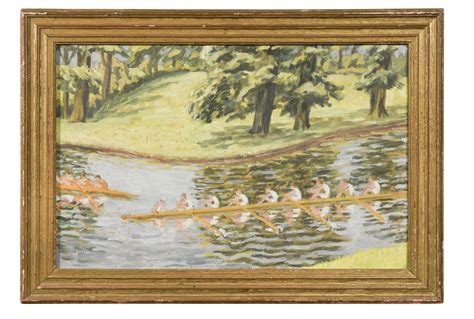A Quote by Charles Sanders Peirce
When anything is present to the mind, what is the very first and simplest character to be noted in it, in every case, no matter how little elevated the object may be? Certainly, it is its presentness .
Related Quotes
One of the rules that I always follow is that no matter how crazy characters may act, and no matter how absurd or strange their actions may be, that it's justified in the character's mind why they are doing it. Not to get all heady about it, but it's fun for me to test how far I can go with things while still keeping it grounded enough that you believe that the character really believes that what he's doing will get him what he wants. It's a personal challenge to me to see how far I can go with that.
I have set off and found that there is no end to even the simplest journey of the mind. I begin, and straight away a hundred alternative routes present themselves. I choose one, no sooner begin, than a hundred more appear. Every time I try to narrow down my intent I expand it, and yet those straits and canals still lead me to the open sea, and then I realize how vast it all is, this matter of the mind. I am confounded by the shining water and the size of the world.
I can't deceive myself out of the bare stark realization that no matter how enthusiastic you are, no matter how sure that character is fate, nothing is real, past or future, when you are alone in your room with the clock ticking loudly into the false cheerful brilliance of the electric light. And if you have no past or future which, after all, is all that the present is made of, why then you may as well dispose of the empty shell of present and commit suicide.
Art is the microscope of the mind, which sharpens the wit as the other does the sight; and converts every object into a little universe in itself. Art may be said to draw aside the veil from nature. To those who are perfectly unskilled in the practice, unimbued with the principles of art, most objects present only a confused mass.
you may take it from me, that however hard you try - or don't try; whatever you do - or don't do; for better, for worse; for richer, for poorer; every way and every day: the parent is always wrong. So it is no good bothering about it. When the little pests grow up they will certainly tell you exactly what you did wrong in their case. But never mind; they will be just as wrong themselves in their turn.
Objects must cease, mind must become just a pure mirror - a mirroring, not mirroring anything - just a mirror without any object in it, a pure mirror. By dhyan, this purity of the mind is indicated. So first, no object should be in the mind. Mind must remain alone without thinking about anything - with no thought, just a consciousness, just an awareness, just an alertness. This alertness without any object is meditation.
The very actions themselves can be a meditation. For me, walking is certainly a meditation if I walk for awhile. First my mind is busy and I'm thinking about different things and after a while that starts to fall away and I start to become very present in the moment. And that feeling of being present in the moment is being. That's when we know we're connecting with being energy.
No matter how well-born, how intelligent, how highly educated, how virtuous, how rich, how refined, the women of to-day constitutea political class below that of every man, no matter how base-born, how stupid, how ignorant, how vicious, how poverty-stricken, how brutal. The pauper in the almshouse may vote; the lady who devotes her philanthropic thought to making that almshouse habitable, may not. The tramp who begs cold victuals in the kitchen may vote; the heiress who feeds him and endows universities may not.
It is often said that all the conditions for the first production of a living organism are now present, which could ever have been present. But if (and oh! what a big if!) we could conceive in some warm little pond, with all sorts of ammonia and phosphoric salts, light, heat, electricity, &c., present, that a proteine compound was chemically formed ready to undergo stillmore complex changes, at the present day such matter would be instantly devoured or absorbed, which would not have been the case before living creatures were formed.
No matter where you go, no matter how many gifts you give and receive this holiday season, unless you are actually present, it all flies by as if in a dream. Satisfaction in anything--a meal, an interaction, a gift, a sunset--depends on your willingness to take it in. Breathe. Feel your arms and your legs. You are allowed to love every little thing about yourself and your life. You are allowed to take up space and be all that you are. Really you are.
... the loss of belief in future states is politically, though certainly not spiritually, the most significant distinction betweenour present period and the centuries before. And this loss is definite. For no matter how religious our world may turn again, or how much authentic faith still exists in it, or how deeply our moral values may be rooted in our religious systems, the fear of hell is no longer among the motives which would prevent or stimulate the actions of a majority.
Let's call something a rigid designator if in every possible world it designates the same object, a non-rigid or accidental designator if that is not the case. Of course we don't require that the objects exist in all possible worlds.... When we think of a property as essential to an object we usually mean that it is true of that object in any case where it would have existed. A rigid designator of a necessary existent can be called strongly rigid.








































